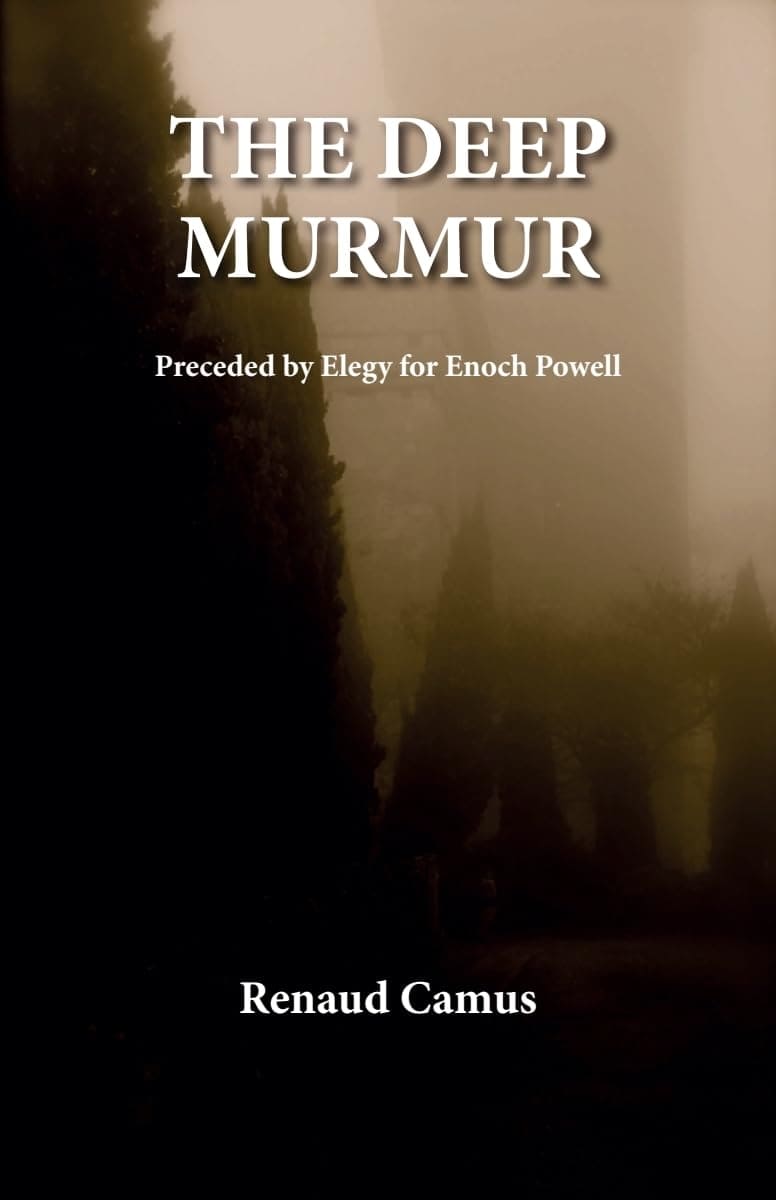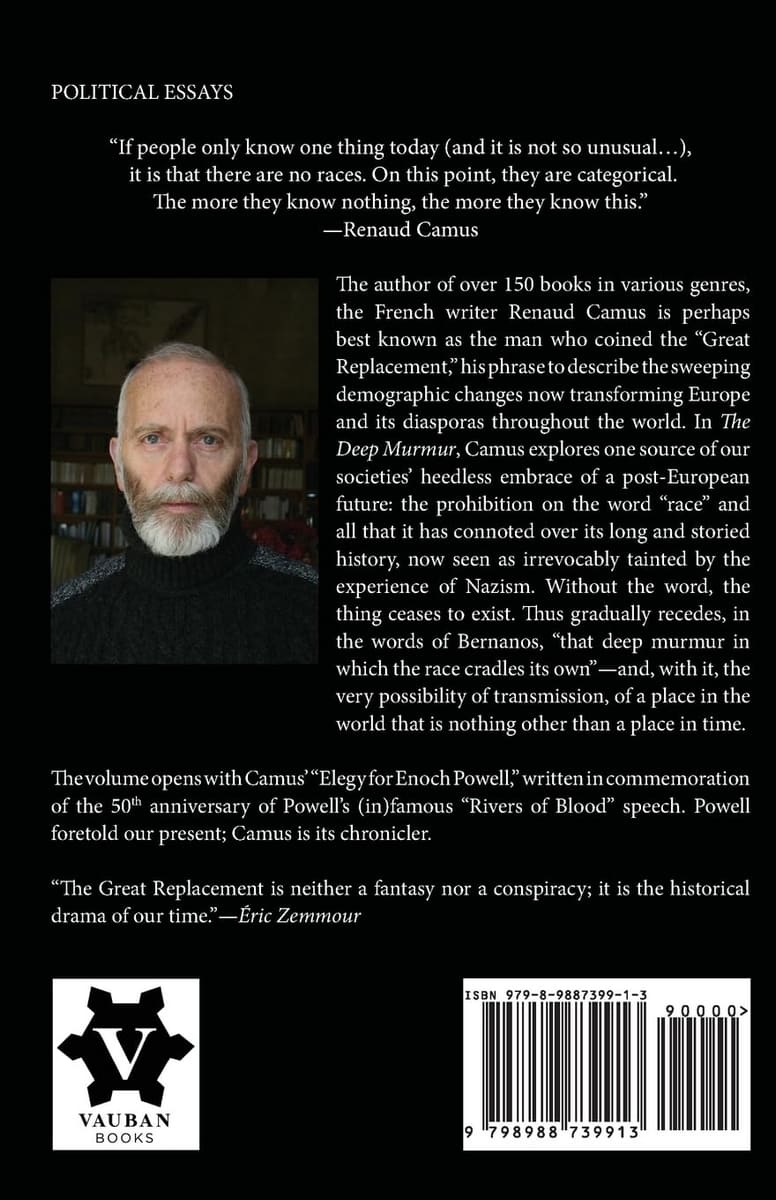


$11.95
“If people only know one thing today (and it is not so unusual), it is that there are no races. On this point, they are categorical. The more they know nothing, the more they know this.” (Renaud Camus)
The author of over 150 books in various genres, the French writer Renaud Camus is perhaps best known as the man who coined the "Great Replacement", his phrase to describe the sweeping demographic changes now transforming Europe and its diasporas throughout the world. In The Deep Murmur, Camus explores one source of our societies' heedless embrace of a post-European future: the prohibition on the word "race" and all that it has connoted over its long and storied history, now seen as irrevocably tainted by the experience of Nazism. Without the word, the thing ceases to exist. Thus gradually recedes, in the words of Bernanos, "that deep murmur in which the race cradles its own" - and, with it, the very possibility of transmission, of a place in the world that is nothing other than a place in time.
The volume opens with Camus' "Elegy for Enoch Powell," written in commemoration of the 50th anniversary of Powell's (in)famous "Rivers of Blood" speech. Powell foretold our present; Camus is its chronicler.
“The Great Replacement is neither a fantasy nor a conspiracy; it is the historical drama of our time.”
“In a forthcoming translated work, provocatively titled Elegy for Enoch Powell, Camus points out that the moral force of replacism is a byproduct of making man himself a product. For doing so collapses any distinction between free circulation of goods and services, and the free circulation of people, meaning the economic interests of big business merge seamlessly with the moral rubric of “equality” in a vision of humans not as in relationship with others, but interchangeable: what Camus calls "undifferentiated human matter". ”
A native of Chamalières in the Auvergne region of central France, Renaud Camus (b. 1946) is one of France’s most brilliant stylists and the author of more than 150 books. Tricks, his first and only work to be translated into English until now, appeared in 1979 and was prefaced by Roland Barthes, one of twentieth-century France’s greatest literary critics and Camus’ mentor. In addition to the political essays collected in Enemy of the Disaster, Camus is also known for works of fiction, philosophy, travel writing, art criticism, and the extensive diary he has kept and published for over forty years. He lives in the Chateau de Plieux in the village of Plieux in southwestern France and is the president of a small political party, the Party of Innocence, which advocates immigration and education reform and the promotion of civic peace.
Ethan Rundell is a translator, journalist, alumnus of UC, Berkeley and Paris' School for Advanced Studies in the Social Sciences (EHESS). He has translated over a dozen books as well as scores of academic articles. After several years in France, he now lives in North Carolina.